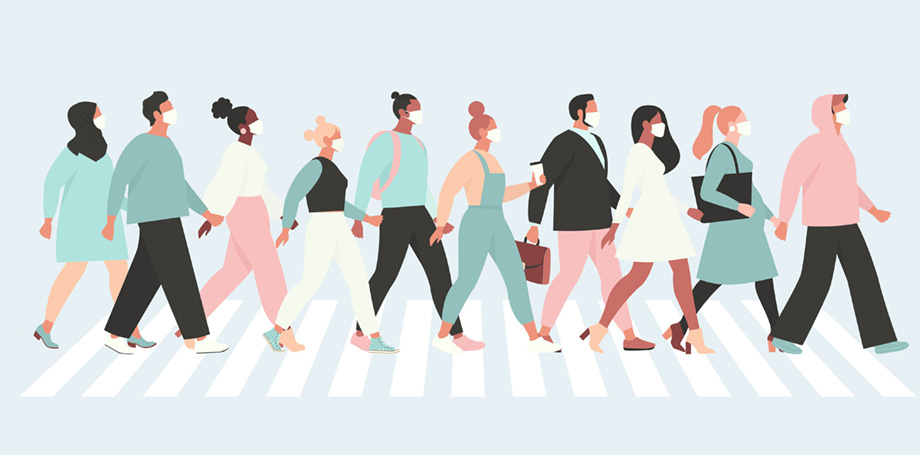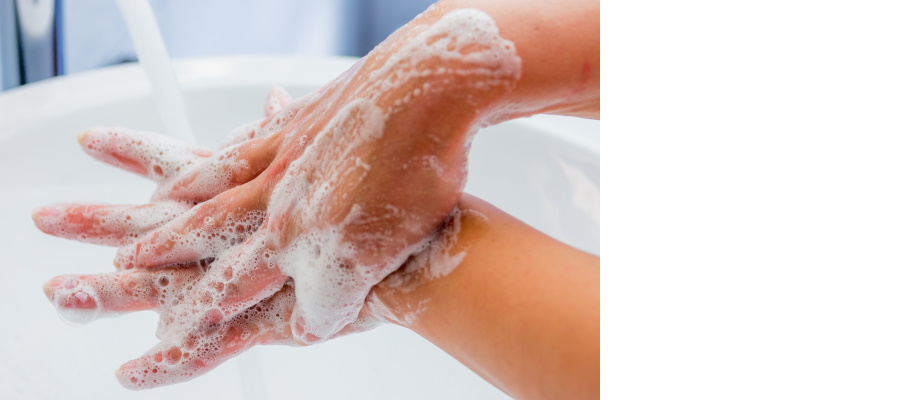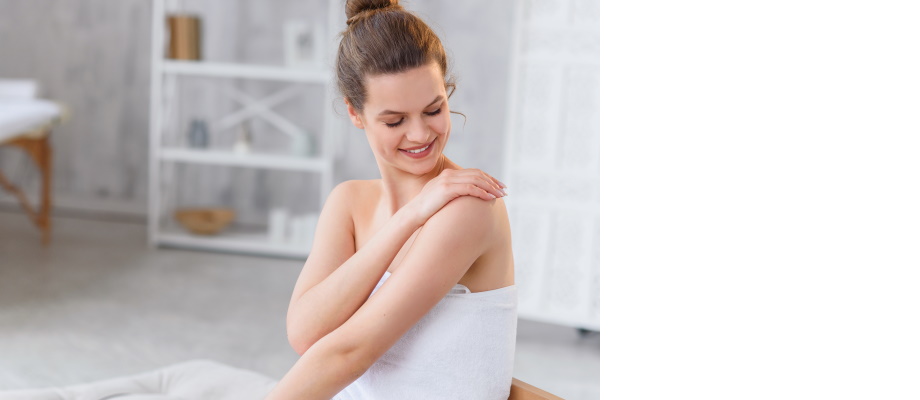How is COVID-19 changing trends in the cosmetic industry?
9
Jul

The cosmetic industry plays a vital part during the pandemic, delivering basic personal care and hygiene products, hand sanitizers, thus supporting our wellbeing. At the same time the current situation has made consumers rethink their opinions and needs with regards to care products.
Meet new cosmetic superheroes: Hand soap and sanitizer
The coronavirus pandemic has revealed the scale of negligence in terms of hygiene all around the world. According to a WHO and UNICEF 2019 report, as much as 40% of global population lacks access to water and personal hygiene products in their homes. Unfortunately, as a number of studies indicates, the problem with personal hygiene affects not only third world countries.
According to a 2015 WIN/Gallup International study conducted across 63 countries, only 65% of population have a habit of washing their hands after using the toilet. Meanwhile, WHO says that frequent and thorough hand washing with soap and water is one of the cheapest, easiest and most relevant ways to stop the spread of coronavirus. Possibly, increased awareness of hand hygiene and use of both bar and liquid soap as well as body wash liquids may be some of the positive impacts of COVID-19.

According to the latest report published by ResearchAndMarkets.com, sales of liquid hand soap have gone up by 7,5% in the USA. More hand washing has also led to an increased demand for luxury hand soap as consumers are looking for products that will be gentle on their skin. In the UK sales of luxury hand soap has grown by as much as 102% as a result of COVID-19.
Additionally, the outbreak of COVID-19 has reinforced the importance of regular hand disinfection among consumers and led to a rapid surge in sales of hand sanitizers as a preventive measure against COVID-19. At the same time for many cosmetic companies a temporary shift towards sanitizing gels and liquids has become a way to survive plummeting sales in remaining product categories.
An April 2020 report by Grand View Research indicates that the size of the global hand sanitizer market in 2019 was estimated at $2,7bn and its CAGR is expected to reach 22,6% in the period of 2020-2027.
Care and hygiene in the times of pandemic
Frequent hand washing and disinfection, along with other precautions, such as face masks and gloves help curb the spread of coronavirus but on the other hand, these measures could lead to a number of skin problems.
Irritated, dry, cracked and flaking skin… these are some of the plights that we suffer from as a result of our intensified use of detergents and disinfectants as well as non-breathing gloves. Wearing face masks adversely can have an impact on our complexion. Chafing, irritation, rash, the occurrence or escalation of skin conditions pose even more challenges that we need to face.
Moreover, the pandemic has generated increased levels of stress, which also possibly takes a toll on our skin.
The present situation has clearly forced consumers to revise their priorities and personal care habits. According to Mintel’s observations, there is a „domino effect” that includes growing demand for hand care products, especially ones with an enhanced sensory profile. Additionally, consumers now expect more from their hand sanitizers. Apart from their basic antimicrobial function such products should deliver further benefits, like moisturization or appealing fragrance.
Home SPA
The fact that beauty and hair salons were temporarily closed in many countries, has made home beauty rituals more popular and relevant. The period of self-isolation is conducive to home facial, hair and body treatments because we now have gained more time to perform them.

According to McKinsey & Company, skin, hair and body care products, along with bath liquids, are the ones growing strong and riding on the wave of home spa. Zalando, an e-commerce platform that is currently the largest online fashion and lifestyle store in Europe, has seen a significant growth in the sales of a number of care-related categories, including candles, aromatherapy and detoxifying products, while skin, nail and hair care categories have gone up by an impressive 300% compared to the previous year. Similar effect was observed by Amazon, for whom the sales of makeup products in the US declined compared to the same period of 2019, while nail care, hair coloring, bath and body care products have grown by 218%, 172% and 65% respectively.
McKinsey & Company points out towards the emergence of another interesting trend – do-it-yourself beauty treatments. Doing your nails, dying your hair and preforming other beauty treatments at home is becoming more and more popular among consumers. In the US, Nielsen observed an increase in the sales of hair dyes and hair clippers by 23% and 166% respectively in the first week of April 2020, compared to the same period last year. In the UK online sales of luxury brands of nail polishes have been experiencing 2-digit growth every week since March 2020.
Less means more
Our new home office reality, long hours spent indoors, social distancing, and the need to wear masks made consumers reach less for color cosmetics and perfumes. Many women have chosen to go for quality, effective skincare and let their skin take a break from makeup.
Moreover, after the health crisis many consumers will probably face economic hardships. According to a McKinsey survey among British consumers, 66% of respondents believe that the current situation is going to affect their material status for at least 2 months, while 36% claim to be cutting spending.
According to McKinsey & Company data, the luxury goods sector has seen a decline in sales of cosmetics and perfumes of 55 to 75%.
The economic crisis that will follow the pandemic will force consumers to make more deliberate shopping decisions; they will be much less impulse-driven and more careful not to buy items that are not absolutely necessary.
Evolution of pure beauty
The notion of „pure beauty” refers to products that are made with clean and sustainable sometimes even with organic and natural ingredients, This trend has been growing steadily for a good while now and consumers are constantly becoming more conscious of what they use and apply.
The outbreak of COVID-19 made us reevaluate our impact on nature and think of ways to be more health conscious as well as how to build natural immunity. As a consequence we turn to products that are free from chemicals and full of clean, authentic ingredients.
On the other hand, as Mintel observed, COVID-19 is changing consumers’ approach to the safety of ingredients, purity and shelf life of cosmetic products. A lot of consumers used to avoid preservatives, due to their possible negative effect on their health. The current pandemic has shifted some of their priorities, leading to focus on efficacy along with safety. This leads to a greater acceptance of safe synthetic ingredients that can prolong shelf life.
Eliminating the need to touch your face
Because consumers are becoming more aware of the presence of microorganisms on various surfaces, Mintel is anticipating an increased demand for cosmetics that are packaged in a way that eliminates the need to touch ones face during application. „Contactless” sprays and sticks, both in care and color cosmetics, will gain appeal and popularity.
Sources:
- www .who.int/water_sanitation_health/publications/jmp-report-2019/en/
- www.wateraid.org/us/media/global-handwashing-day-hygiene-in-schools-healthy-children
- www.bva-group.com/sondages/les-francais-et-le-savonnage-des-mains-apres-etre-alle-aux-toilettes/
- www.researchandmarkets.com/issues/soap-and-body-wash-rising-by-194pct?utm_source=dynamic&utm_medium=CI&utm_code=2c8dgl&utm_campaign=1383430+-+Soap+%26+Body+Wash+Market+Sees+194%25+Growth+Amid+COVID-19+Pandemic&utm_exec=joca220cid
- www.grandviewresearch.com/industry-analysis/hand-sanitizer-market
- www.cosmeticsdesign-europe.com/Article/2020/03/27/Coronavirus-to-impact-beauty-business-trends-says-Mintel
- www.cosmeticsdesign-europe.com/Article/2020/05/27/COVID-19-trending-beauty-topics-are-moisturising-vitamins-and-DIY-finds-Revuze
- www.mckinsey.com/industries/consumer-packaged-goods/our-insights/how-covid-19-is-changing-the-world-of-beauty#
- www.cosmeticsdesign-europe.com/Article/2020/05/18/COVID-19-impacts-beauty-and-personal-care-usage-occasions-hard-says-Kantar-Worldpanel
- www.hindustantimes.com/brunch/how-will-the-pandemic-change-the-face-of-beauty/story-08PE35uf7h2a2MgET6WqHK.html
- www.mintel.com/blog/beauty-market-news/covid-19-increases-demand-for-safe-and-reliable-bpc-products

Anna Cwajda
PRODUCT & SALES MANAGER
I joined the IMPAG Poland Team as a Product & Sales Manager in August 2017. Problems with my very sensitive and atopic skin have raised my interest in the Personal Care industry as I was always searching for the perfect cosmetics product. I even tried to create my own formulations, using the knowledge gained during my chemical technology studies.
Personally, I love dancing (cuban salsa and brazilian zouk) which gives me a lot of energy and happiness. In my spare time, I love reading books or using my camera to capture beautiful moments in photos.


Comments are disabled for this post.